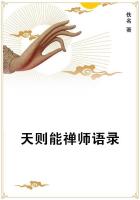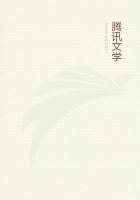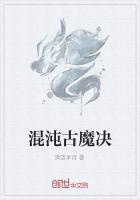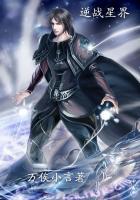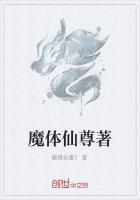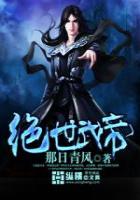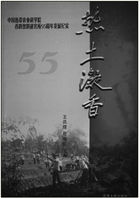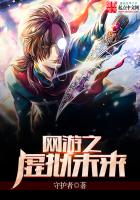"My uncle has the papers safe enough," replied Fisher, "and is sending them west to-night; but somebody is trying to get at them from out. side, I fear with the assistance of somebody in. side. All I can do at present is to try to head off the man outside; and I must get away now and do it. I shall be back in about twenty-four hours.
While I'm away I want you to keep an eye on these people and find out what you can. Au revoir." He vanished down the stairs; and from the window March could see him mount a motor cycle and trail away toward the neighboring town.
On the following morning, March was sitting in the window seat of the old inn parlor, which was oak-paneled and ordinarily rather dark; but on that occasion it was full of the white light of a curiously clear morning--the moon had shone brilliantly for the last two or three nights. He was himself somewhat in shadow in the corner of the window seat; and Lord James Herries, coming in hastily from the garden behind, did not see him. Lord James clutched the back of a chair, as if to steady himself, and, sitting down abruptly at the table, littered with the last meal, poured himself out a tumbler of brandy and drank it.
He sat with his back to March, but his yellow face appeared in a round mirror beyon and the tinge of it was like that of some horrible malady. As March moved he started violently and faced round.
"My God!" he cried, "have you seen what's outside?""Outside?" repeated the other, glancing over his shoulder at the garden.
"Oh, go and look for yourself," cried Herries in a sort of fury. "Hewitt's murdered and his papers stolen, that's all."He turned his back again and sat down with a thud; his square shoulders were shaking. Harold March darted out of the doorway into the back garden with its steep slope of statues.
The first thing he saw was Doctor Prince, the detective, peering through his spectacles at something on the ground; the second was the thing he was peering at. Even after the sensational news he had heard inside, the sight was something of a sensation.
The monstrous stone image of Britannia was lying prone and face downward on the garden path; and there stuck out at random from underneath it, like the legs of a smashed fly, an arm clad in a white shirt sleeve and a leg clad in a khaki trouser, and hair of the unmistakable sandy gray that belonged to Horne Fisher's unfortunate uncle. There were pools of blood and the limbs were quite stiff in death.
"Couldn't this have been an accident?" said March, finding words at last.
"Look for yourself, I say," repeated the harsh voice of Herries, who had followed him with restless movements out of the door. "The papers are gone, Itell you. The fellow tore the coat off the corpse and cut the papers out of the inner pocket. There's the coat over there on the bank, with the great slash in it.""But wait a minute," said the detective, Prince, quietly. "In that case there seems to be something of a mystery. A murderer might somehow have managed to throw the statue down on him, as he seems to have done. But I bet he couldn't easily have lifted it up again. I've tried; and I'm sure it would want three men at least. Yet we must suppose, on that theory, that the murderer first knocked him down as he walked past, using the statue as a stone club, then lifted it up again, took him out and deprived him of his coat, then put him back again in the posture of death and neatly replaced the statue. I tell you it's physically impossible. And how else could he have unclothed a man covered with that stone monument? It's worse than the conjurer's trick, when a man shuffles a coat off with his wrists tied.""Could he have thrown down the statue after he'd stripped the corpse?" asked March.
"And why?" asked Prince, sharply. "If he'd killed his man and got his papers, he'd be away like the wind. He wouldn't potter about in a garden excavating the pedestals of statues. Besides--Hullo, who's that up there?"High on the ridge above them, drawn in dark thin lines against the sky, was a figure looking so long and lean as to be almost spidery. The dark silhouette of the head showed two small tufts like horns; and they could almost have sworn that the horns moved.
"Archer!" shouted Herries, with sudden passion, and called to him with curses to come down. The figure drew back at the first cry, with an agitated movement so abrupt as almost to be called an antic.
The next moment the man seemed to reconsider and collect himself, and began to come down the zigzag garden path, but with obvious reluctance, his feet falling in slower and slower rhythm. Through March's mind were throbbing the phrases that this man himself had used, about going mad in the middle of the night and wrecking the stone figure. just so, he could fancy, the maniac who had done such a thing might climb the crest of the hill, in that feverish dancing fashion, and look down on the wreck he had made. But the wreck he had made here was not only a wreck of stone.
When the man emerged at last on to the garden path, with the full light on his face and figure, he was walking slowly indeed, but easily, and with no appearance of fear.
"This is a terrible thing," he said. "I saw it from above; I was taking a stroll along the ridge.""Do you mean that you saw the murder?" demanded March, "or the accident? I mean did you see the statue fall?""No," said Archer, "I mean I saw the statue fallen."Prince seemed to be paying but little attention; his eye was riveted on an object lying on the path a yard or two from the corpse. It seemed to be a rusty iron bar bent crooked at one end.

